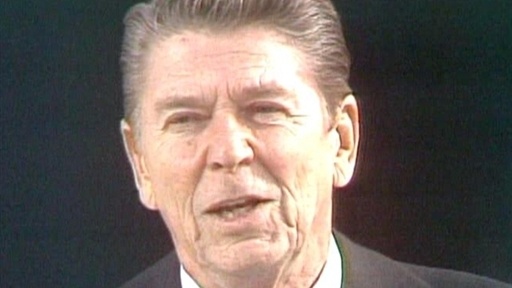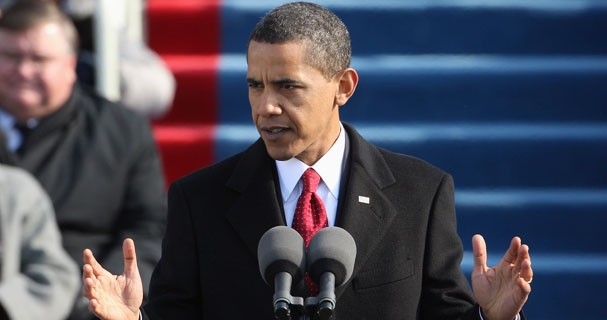
 Author Steven Clark Bradley
Author Steven Clark BradleyAmerica now owes over One Trillion Dollars to China. Last week, the head of the Chinese military called for his government to 'punish' the United States for its support of Taiwan by calling on his government to sell off the debt they purchased from us when Obama borrowed away this nation's future for an Economic Stimulus that has only lost over four million jobs. Welcome to China's newest Vassal State.

 When I think of Ronald Reagan and his honored greatness, I remember when I sat captivated with hope and morning in America as he gave his first inaugural address. His words stood out in a phrase that powerfully sums up his whole message. He told a nation that had lost its confidence that it was not that government was a part of the problem or the solution to the the problems we face, but that Government was the problem. It is today much more than in Ronald Reagan's day. My, how we have again drifted off the road of political and economic sanity. Nevertheless, he always gave me hope by his words and his faith in someone much larger and much more powerful than he was.
When I think of Ronald Reagan and his honored greatness, I remember when I sat captivated with hope and morning in America as he gave his first inaugural address. His words stood out in a phrase that powerfully sums up his whole message. He told a nation that had lost its confidence that it was not that government was a part of the problem or the solution to the the problems we face, but that Government was the problem. It is today much more than in Ronald Reagan's day. My, how we have again drifted off the road of political and economic sanity. Nevertheless, he always gave me hope by his words and his faith in someone much larger and much more powerful than he was.
 Barack Obama is no less captivating, but he instills fear and worry rather than confidence in our people to trust God enough top care for themselves. This president is about mediocre and absolute subservience and absolute reliance upon the a system of absolute tyrants now conducting the fundamental transformation of the United States of America. .
Barack Obama is no less captivating, but he instills fear and worry rather than confidence in our people to trust God enough top care for themselves. This president is about mediocre and absolute subservience and absolute reliance upon the a system of absolute tyrants now conducting the fundamental transformation of the United States of America. . As I have been told it so perfectly, "Before I refuse to take your questions, I have an opening statement. Ronald Reagan," Sheridan Folger So accurately said!
As I have been told it so perfectly, "Before I refuse to take your questions, I have an opening statement. Ronald Reagan," Sheridan Folger So accurately said!
 When I consider the how great a number of challenges this last best hope for mankind is now encumbered with, and how far less safe we all indeed now are, I think Barack Obama. What do you think. Never stop saying so! God Bless America.
When I consider the how great a number of challenges this last best hope for mankind is now encumbered with, and how far less safe we all indeed now are, I think Barack Obama. What do you think. Never stop saying so! God Bless America.Steven Clark Bradley

The Looming Dangers of American Debt
(http://www.thetrumpet.com/index.php?q=2460.1126.0.0)
Increasingly, that debt is held by foreign nations
—some of which are enemies.
What does the term serf bring to mind? Poor, indebted, landless, forced labor—perhaps even medieval. Shockingly, serfdom is a reality many Americans may face in the future. Here is why.
The U.S. national debt now stands at more than $8.3 trillion, of which more than $2 trillion is owned by foreigners. Since 2000, the percentage of U.S. public debt owed to foreigners has doubled.
Take China for example. As of March of this year, China held over $321 billion, up from the $60 billion it owned at the end of 2000. Similarly, Japan now owns $640 billion worth of U.S. Treasuries, up from $317.7 billion in December 2000. Lately, however, America has also borrowed heavily from oil exporter nations (as defined by the Department of the Treasury), which include many nations that despise America. Luminaries such as Venezuela, Ecuador, Iran, Libya, Algeria, Indonesia and Iraq, and several other primarily Middle Eastern nations, now own $98 billion worth of U.S. debt. worth of U.S. Treasuries, up from the
According to Brad Setser, director of research at Roubini Global Economics, “The irony is that the three countries in the world adding to reserves the fastest and thus buying the most U.S. debt now are China, Saudi Arabia and Russia, none of them democracies. … We are increasingly counting on a group of creditors who are not our closest friends but have a bigger and bigger stake in America,” he says.
So America’s debt is growing, and a greater amount is in less reliable hands.
This creates two problems.
First, the value of the dollar is increasingly dependent upon foreigners. This makes the U.S. vulnerable to coercion and blackmail.
In commenting on this radical shift in holders of U.S. debt, Frederick Kempe of the Wall Street Journal says, “The more closely economists study that data, the more they worry,” especially over America’s “decrease[d] influence over … the world’s largest market, the $2 trillion in foreign exchange that changes hands daily. The dollar forex market can increasingly be shifted by decisions that foreign governments make about selling dollar assets. What’s also at stake is leverage on matters as diverse as U.S. home mortgage rates and America’s global political clout” (May 9).
For example, remember what happened on June 23, 1997, when former Japanese Prime Minister Ryutaro Hashimoto wondered aloud about what would happen to the U.S. economy if Japan diversified and began to sell some of its, at that time, $300 billion in U.S. Treasury securities (remember Japan now owns more than $640 billion worth). Following Hashimoto’s remarks, the Dow Jones Industrial Average plunged by the largest single day amount (at that time) since the Crash of 1987. Aids to Hashimoto were quick to say that the comments were not intended as a threat. Since then, other foreigners have wondered aloud about dumping U.S. debt (Treasuries), also causing ripple effects through global markets (Moscow Times, May 11).
But what if, at some point, our debtors did want to influence American policy? In a potential conflict between China and Taiwan, would China stand idly by, holding $321 billion in U.S. debt, if the United States was to interfere to protect democratic Taiwan? Would Taiwan simply hold its $68.9 billion if China attacked it and America did not come to its aid?
What if China and Taiwan were to peacefully reunite? Together they would control $389.9 billion worth of U.S. debt. Since China also controls Hong Kong, you can add in an additional $46.6 billion worth of U.S. debt, for a grand total of $436.5 billion.
That is a huge chunk of potential economic or political influence. So much influence that if China even “reduces its Treasury purchases, the U.S. would run into difficulties” financing its debts, says the Nikkei Weekly. That same publication says Chinese leaders have boasted that because China is such an important lender to America, “Beijing is holding a dagger to Washington’s throat” (May 1).
The second problem with having foreigners hold so much U.S. debt is the risk that foreigners may choose to stop accumulating it and start spending it. As with any person, the more money you have, the greater the pull to spend. If foreign nations begin to spend their dollars, the increased supply of U.S. greenbacks in circulation would probably drive the value of the dollar down, making American possessions less expensive relative to assets in other currencies. Consequently, American corporations and businesses could increasingly become targets of foreign acquisitions.
There are signs that some of America’s top corporations are already being snapped up.
Last week, American-owned Engelhard Corporation, a strategic manufacturer of catalytic converters and precious metals processing, announced that it would succumb to German-owned basf’s $5.6 billion hostile takeover—the largest-ever hostile takeover of an American company by a German corporation. Engelhard employs approximately 7,000 people worldwide.
In April, France’s telecommunications giant Alcatel sa announced it would acquire American telecom equipment maker Lucent Technologies Inc. for $13.4 billion. Since then, thousands of American workers have been laid off.
In February, Japan’s Toshiba Corp announced that it had purchased Pennsylvania-based Westinghouse Electric, the manufacturer of nuclear reactor technology, for $5.4 billion (Chicago Sun Times, February 7). Westinghouse had previously been purchased by a British-owned company.
That same month, Dubai Ports World, a United Arab Emirates company, announced it was trying to purchase the right to manage six of America’s largest port complexes, including those of New York, New Jersey, Baltimore, New Orleans, Miami and Philadelphia, from another British company. That deal later fell through due to national security concerns and congressional resistance.
During 2005, congressional opposition blocked another high-profile foreign takeover when Chinese-owned oil company cnooc proposed to buy out U.S. oil company Unocal for $18.5 billion (Financial Times, London, February 9). Slightly more than a month prior to the attempted Unocal deal, China’s Lenovo Group bought ibm’s personal computer unit for $1.75 billion.
Unfortunately, American companies increasingly look like a smorgasbord ready to be gobbled up.
But what if Congress continues to block foreign acquisitions, as it did with cnooc and Dubai Ports World? Foreign investors might become less willing to lend money to the United States. If foreigners are prevented from spending their American dollars on American acquisitions, they might begin to ask themselves why they are purchasing and holding so many U.S. Treasuries—and decide to dump them. Not good news for an already weak dollar.
America’s indebtedness is endangering the nation. Edwin Truman, who directed the Federal Reserve System’s Division of International Finance for 20 years, is not a doomsayer, but even he is warning America that there is now a 10 to 15 percent probability of a “catastrophic collapse of the financial system.” Never mind about the regular-type collapses: He is warning about a “catastrophic” disaster on the scale of the Great Depression or worse (Wall Street Journal, op. cit.).
Overspending has indebted America to the rest of the world. We owe the world so much that the threat of other nations inducing a U.S. economic disaster by just refusing to lend us more money is now a reality. As such, as America’s indebtedness grows, America is less able to protect strategic industries from foreign takeovers.
Who is a serf? A serf is one whose destiny is owned by others. Someone else owns the land he slaves on. Someone else owns the profits and technology he develops. All the fruits of his labor flow to his owners.

living in very strange days?
Ride the storm of Nimrod Rising!
 Have you ever felt that the world was guided in ways that are beyond man’s control? The constant changes in the world since the time of Nimrod 4000 years ago until today and all the events that have shaken the world have been to bring the universe back into the hands of
Have you ever felt that the world was guided in ways that are beyond man’s control? The constant changes in the world since the time of Nimrod 4000 years ago until today and all the events that have shaken the world have been to bring the universe back into the hands of  the Prince of Darkness, Lucia, a world that he had ruled with his Watchers before it was all ripped from his grasp when man was created. Nimrod Rising paints a diabolical picture of how the Prince of Darkness executes his evil plot to take the world back by force and destroy civilization in the process. From the Great Builder Nimrod in 4000 BC to today, 666 generations later, you can ride the storm of Nimrod Rising and experience the death of a world and the birth pangs of another. You will swear it is really upon us!
the Prince of Darkness, Lucia, a world that he had ruled with his Watchers before it was all ripped from his grasp when man was created. Nimrod Rising paints a diabolical picture of how the Prince of Darkness executes his evil plot to take the world back by force and destroy civilization in the process. From the Great Builder Nimrod in 4000 BC to today, 666 generations later, you can ride the storm of Nimrod Rising and experience the death of a world and the birth pangs of another. You will swear it is really upon us!Author Steven Clark Bradley
From The Mind of Steven Clark Bradley
Steven Clark Bradley @ Inspired Author
Steven Clark Bradley - Nikki Leigh Virtual Book Tours
Steven Clark Bradley @ The Power of The Written Word
Steven Clark Bradley @ Communati.com
Steven Clark Bradley @ Blogtalk Radio.com
Steven Clark Bradley @ Facebook
Steven Clark Bradley @ Twitter.com
Steven Clark Bradley @ Xanga.com
Steven Clark Bradley @ Amazon.com
Steven Clark Bradley @ yuku.com
Steven Clark Bradley @ Bookmarket.com
Steven Clark Bradley @ Published Authors.com
Steven Clark Bradley @ Word That Work
Steven Clark Bradley @ Goodreads.com
Steven Clark Bradley @ Myspace.com

No comments:
Post a Comment